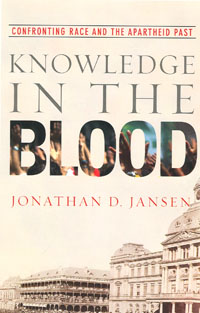Latest News Archive
Please select Category, Year, and then Month to display items
15 March 2022
|
Story Rulanzen Martin
|
Photo Supplied
 The keynote speakers are Dr Khabele Motlosa (right), Senior Lecturer in the Department of Political and Administrative Studies at NUL, and leading Pan-Africanist scholar Prof Molefi Kete Asante(left).
The keynote speakers are Dr Khabele Motlosa (right), Senior Lecturer in the Department of Political and Administrative Studies at NUL, and leading Pan-Africanist scholar Prof Molefi Kete Asante(left).
The
Centre for Gender and Africa Studies (CGAS) at the University of the Free State (UFS), together with the
National University of Lesotho (NUL) and the Academic Forum for Development of Lesotho, is hosting an online think tank on the transnational communities of the Lesotho-South Africa border from 19 to 21 March 2021. The theme of the conference is
Lesotho and South Africa: a clarion call for a Pan-Africanist future.
Dr Munyaradzi Mushonga, Programme Director: Africa Studies Programme in CGAS, is the convenor of the conference and is also leading the UFS borderlands panel. The borderlands project is jointly funded by the Office of the Dean: Faculty of the Humanities at the UFS, and the National Institute for the Humanities and Social Sciences (NIHSS).
For more information and to register for the conference, click here

Knowledge in the blood
2009-08-05
| Knowledge in the blood |
|
 The book Knowledge in the blood, by Prof. Jonathan Jansen, Rector and Vice Chancellor, is available at a bookstore on the Thakaneng Bridge. The book Knowledge in the blood, by Prof. Jonathan Jansen, Rector and Vice Chancellor, is available at a bookstore on the Thakaneng Bridge.
Knowledge in the blood
Confronting race and the apartheid past
Professor Jonathan D. Jansen
978 1 91989 520 8
225 x 152mm
336 pages
Soft cover
May 2009
R250.00 (incl. VAT)
UCT Press
Southern African rights
This book tells the story of white South African students—how they remember and enact an Apartheid past. How is it that young Afrikaners, born at the time of Mandela’s release from prison, hold firm views about a past they never lived, rigid ideas about black people, and fatalistic thoughts about the future? Jonathan Jansen, the first black dean of education at the historically white University of Pretoria, was dogged by this question during his tenure, and Knowledge in the Blood seeks to answer it.
While Jansen originally set out simply to convey a story of how white students change under the leadership of a diverse group of senior academics, Knowledge in the Blood ultimately became an unexpected account of how these students in turn changed him.
“Brave, discerning, and deeply affecting. Bringing realism and rare moral generosity to the most difficult of conflicts, Jonathan Jansen illuminates the struggles faced by the inheritors of violence, as they move from pride and prejudice to a new and larger knowledge. An act of empathy as well as penetrating analysis, Knowledge in the Blood is an inspiring blueprint for thinking about social and personal transformation.”
—Eva Hoffman, author of After Such Knowledge
|
|
|